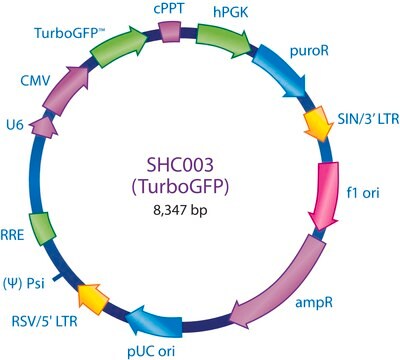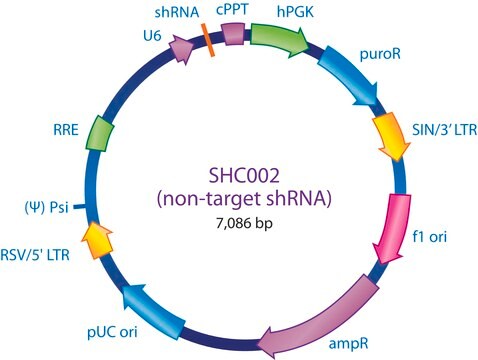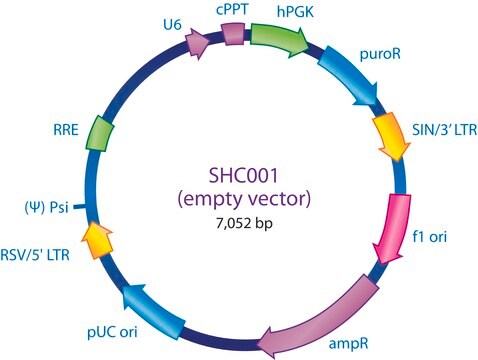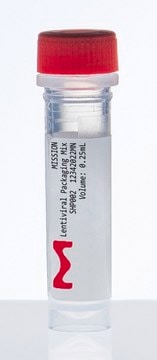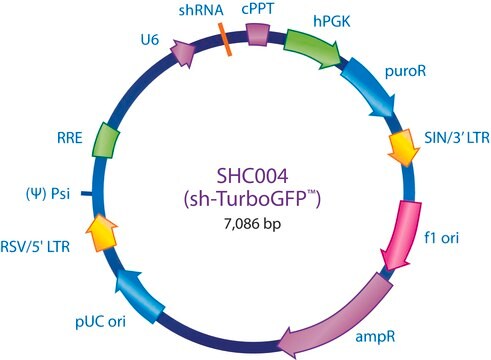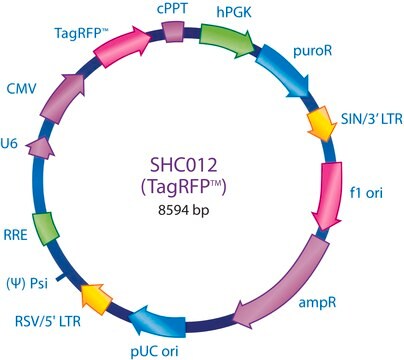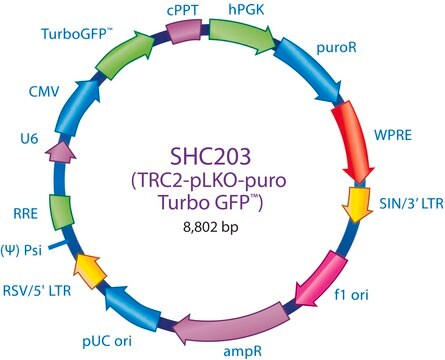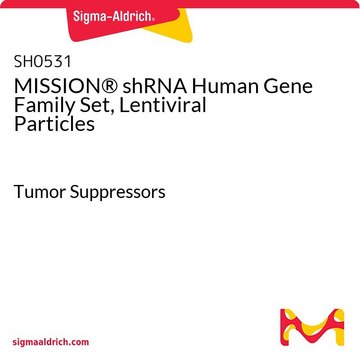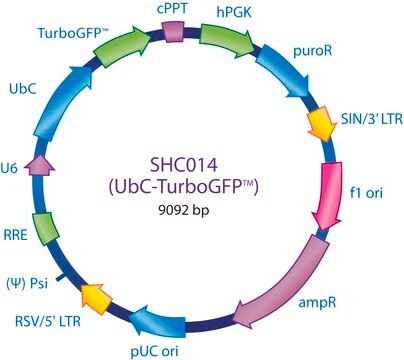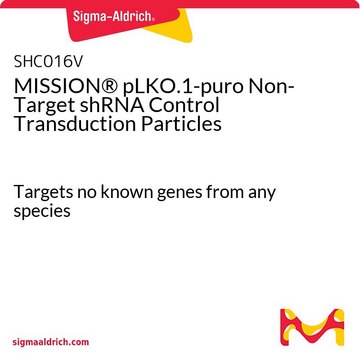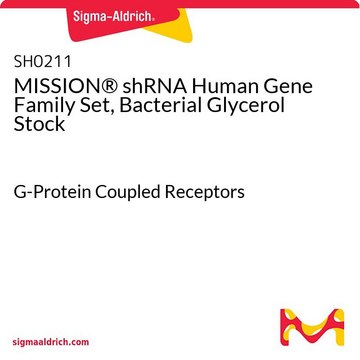SHC003V
MISSION® pLKO.1-puro-CMV-TurboGFP™ Positive Control Transduction Particles
Green fluorescent protein marker to monitor transduction efficiency
Synonym(s):
MISSION®, MISSION® TurboGFP™ Control Transduction Particles
About This Item
Recommended Products
Quality Level
100
200
product line
MISSION®
concentration
≥1x106 VP/ml (via p24 assay)
technique(s)
capture ELISA: 106 TU/mL using p24
shipped in
dry ice
storage temp.
−70°C
Looking for similar products? Visit Product Comparison Guide
Related Categories
General description
TurboGFP™ is an improved variant of the green fluorescent protein copGFP cloned from the copepode Pontellina plumata. The TurboGFP transduction particles are produced from the sequence-verified lentiviral plasmid, pLKO.1-puro-CMV-TurboGFP (SHC003). It is a positive control to monitor transduction efficiency.
Self-inactivating replication incompetent viral particles are produced in packaging cells (HEK293T) by co-transfection with compatible packaging plasmids. In addition, the Control Transduction Particles are pseudotyped with an envelope G glycoprotein from Vesicular Stomatitis Virus (VSV-G), allowing transduction of a wide variety of mammalian cells. 200 μl of 106 TU/ml (via p24 titering assay) lentiviral particles are provided as frozen stock.
To see more application data, protocols, vector maps visit sigma.com/shrna.
Application
Legal Information
recommended
Storage Class
12 - Non Combustible Liquids
wgk_germany
WGK 3
flash_point_f
Not applicable
flash_point_c
Not applicable
ppe
Eyeshields, Gloves, multi-purpose combination respirator cartridge (US)
Choose from one of the most recent versions:
Certificates of Analysis (COA)
Don't see the Right Version?
If you require a particular version, you can look up a specific certificate by the Lot or Batch number.
Already Own This Product?
Find documentation for the products that you have recently purchased in the Document Library.
Customers Also Viewed
Articles
An experiment to directly compare three methods of lentiviral transduction of Jurkat cells was conducted in order to determine the method that yields the greatest transduction efficiency.
Protocols
Detailed procedure for how to perform a lentiviral transduction of MISSION shRNA lentiviral particles to achieve a stable long term silencing and phenotypic change.
Our team of scientists has experience in all areas of research including Life Science, Material Science, Chemical Synthesis, Chromatography, Analytical and many others.
Contact Technical Service